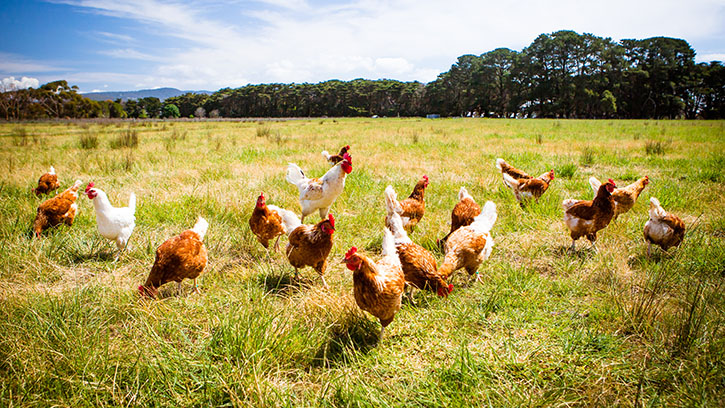RSPCA Assured has rowed back on its plans to require free range egg producers to install verandas on poultry houses, following a backlash from the industry. It will, however, require barn producers to install verandas by 2030, with some exceptions.
In November 2023, RSPCA Assured first notified its members of the new laying hen welfare standards. The assurance scheme said the idea was to improve bird welfare, with the measures expected to help to reduce feather pecking and keel bone fractures – two of the most challenging welfare issues for hens in egg production.
However, when the announcement was made – coinciding with the British Free Range Producers’ Association (BFREPA) conference, trade bodies said they had not been consulted, and the measures would be both very expensive and in some cases impractical to implement. Since then, several meetings between RSPCA, RSPCA Assured met and industry representatives have taken place, and now the plans have been changed.
Following the meetings, no free-range members will be required to install verandas. The requirement for new free-range members or existing members carrying out a major refurbishment to install a veranda, originally announced in November, has been removed. The RSPCA and RSPCA Assured will jointly engage with industry to conduct an in-depth review of installing verandas on free-range systems.
For barn egg producers, the rules are different. Verandas must be installed on all barn buildings by no later than 1 January 2030. The requirement for newly approved buildings and refurbished buildings to install verandas from 1 May 2024 has been removed, this provides additional time for both existing and new barn members to install verandas.
The new rules also cover natural daylight provision. For free-range members, additional natural daylight within the main laying house, corresponding to at least 3% of the total floor area, must be provided in all free-range systems by no later than 1 January 2031. Popholes can be counted towards the natural daylight allowance. Many free-range producers will already be providing approximately half of the natural daylight requirement through existing popholes. Newly approved buildings and refurbished buildings are no longer required to install windows from May 2024.
For barn members, natural daylight within the main laying house, corresponding to at least 3% of the total floor area, must be provided in all barn systems by no later than 1 January 2031. Newly approved buildings and refurbished buildings are no longer required to install windows from May 2024.
The timelime for natural daylight has been extended by one year which now gives RSPCA Assured laying hen members seven years to implement the new standards in their entirety and allows increased engagement with industry and members.
Dr Kate Norman, senior scientific officer and poultry specialist at the RSPCA, said: “We recognise that these changes are challenging for producers, but they represent a very important step forward for hen welfare in the UK.
“Natural daylight provides a number of important welfare benefits for laying hens such as helping to reduce stress, feather pecking and keel bone fractures.”
A joint statement on the developments was issued by BEIC, BFREPA, NFU Scotland, UFU. It states: “Following the publication of the RSPCA amended laying hen welfare standards in November, industry representatives issued a joint letter to the RSPCA raising a number of serious concerns. The industry met with representatives of the RSPCA/RSPCA Assured in person at the British Egg Industry Council on the 20 November to discuss the significant impact of the proposed standards.
“The RSPCA/RSPCA Assured subsequently reviewed the industry feedback and a meeting was convened on 22 January 2024 between the BEIC, BFREPA, the four UK farming unions and producers together with representatives from RSPCA/RSPCA Assured. At this meeting the RSPCA outlined amendments to their laying hen standards to take into account some of the industry’s concerns.
“The industry welcomes the RSPCA’s decision not to include verandas in the standards for free range egg production but also feels this should not be required for barn systems. In addition, industry strongly feels that joint practical farm case studies, based on UK conditions, should be conducted to better understand how increasing natural daylight will benefit bird welfare in free range systems, particularly given the natural light variations between the north and south of the UK, before this standard is implemented. It was also pointed out that, fundamentally, natural daylight is already provided both to the birds and in the shed, during day light hours, when the pop holes in free range systems are open.
“British egg producers are fully committed to the welfare of their hens and their objective is to ensure that any revisions to the welfare standards truly benefit bird welfare based on UK conditions. This will ensure that British eggs continue to be produced to the highest welfare specifications without the imposition of unnecessary costs.”


